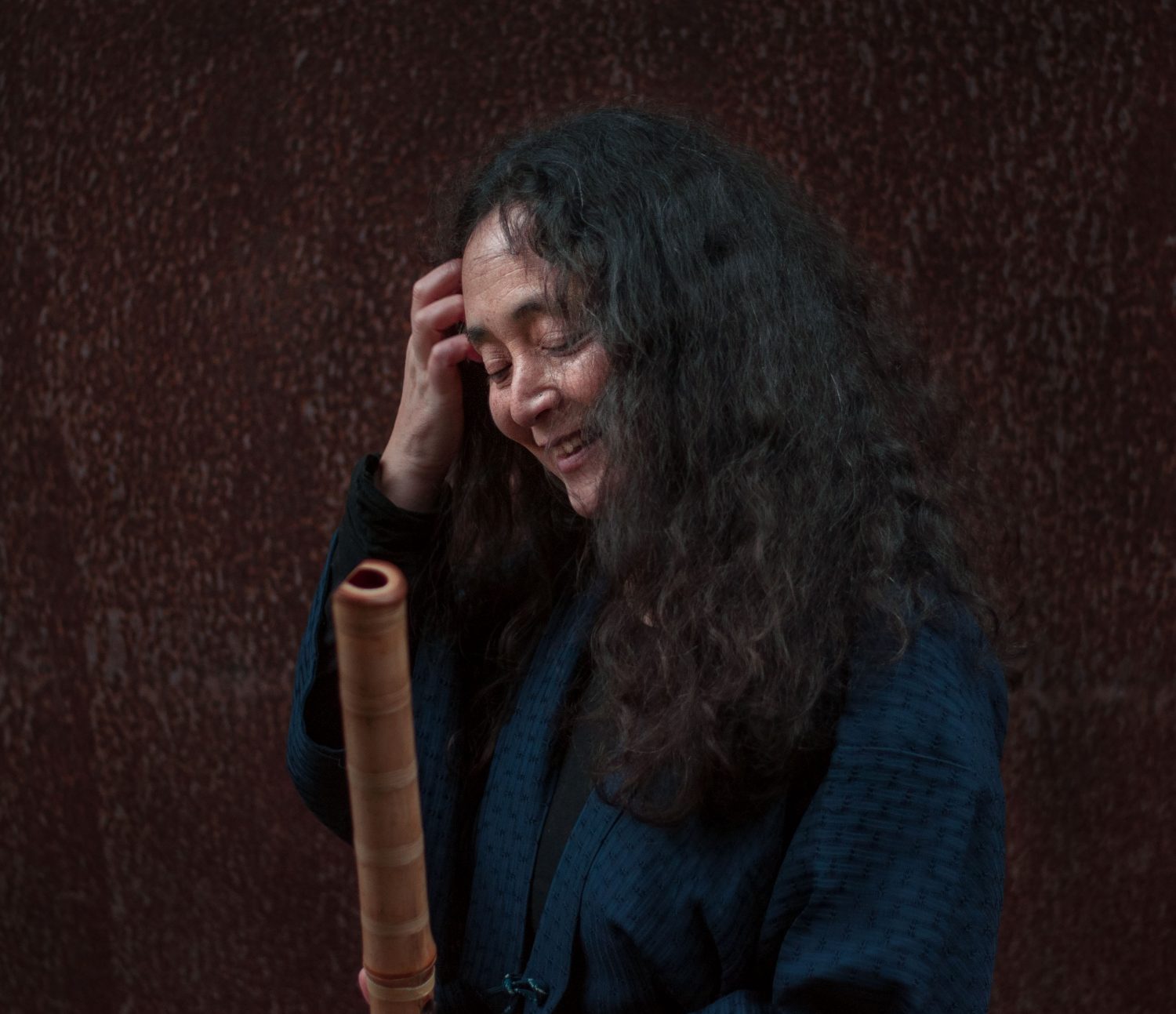To work with music in communities is a passion for me. Music is a social activity, and through music I believe I can reach out and make a difference.
Shakuhachi Community
The creation of the European Shakuhachi Society
When I returned to Europe in 2005 after living in the USA for two years, I felt an urgent need to create a society within which shakuhachi players from various ryūha or guilds could work together. It was my clear conviction that the more we knew about each others’ guilds and the music played – the less difference and more community feeling could be created. I contacted shakuhachi players Jim Franklin, Véronique Piron and Michael Soumei Coxall. Together we founded the European Shakuhachi Society (ESS) during the first European Shakuhachi Summer School in 2006. It was registered as a Charity Organisation under the Charity Commission in England and Wales in 2008. The ESS has since 2006 become a platform or space for all shakuhachi players in Europe to connect. The ESS has organised 11 Summer Schools. I was personally the chairperson of the ESS for 10 years from 2009 till 2019. The ESS has around 100 members. The important work we do is to support the various guilds and also the upcoming performers/teachers of shakuhachi, disseminate knowledge about the shakuhachi. It is also meant as a space for the amateur shakuhachi lover to connect to the community and to gather information from the website: www.shakuhachisociety.eu
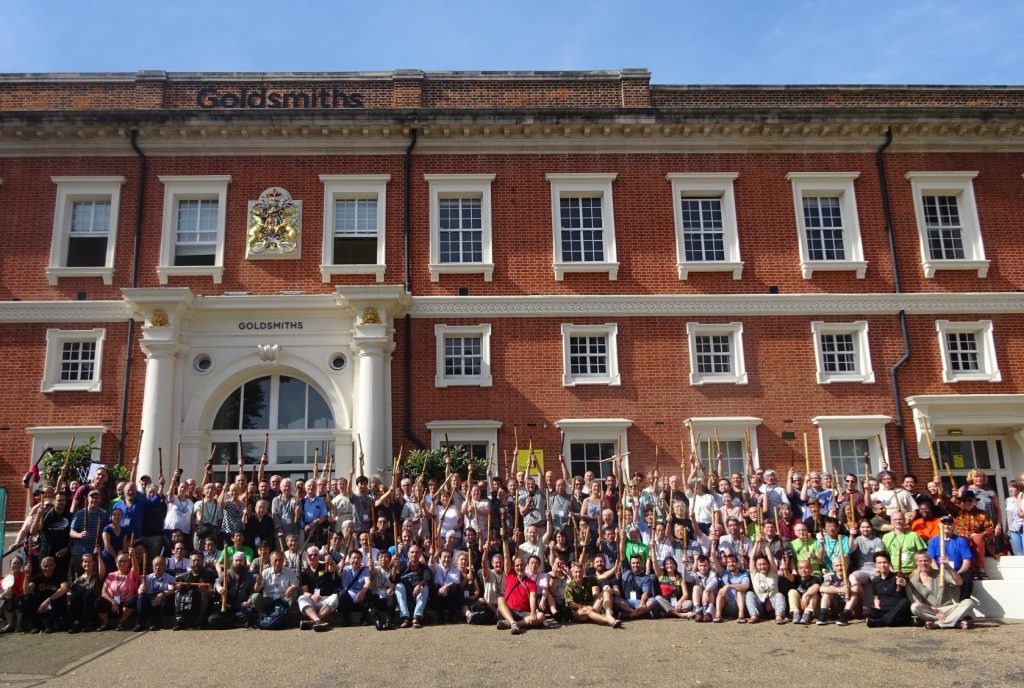
European Shakuhachi Summer School
In 2005 Michael Soumei Coxall and I organised the first European Shakuhachi Summer School. My teacher from Japan Okuda Atsuya and his wife Kazuko and son Utanosuke, who are both fantastic koto and shamisen players and singers came to support us in our efforts. While Coxall and I organised the event we had at the time no clue how many would enrolling. We were overwhelmed! There had been a shakuhachi deficit at the time and more than 50 participants came and made it a great event. We organise a Summer School each year except when there is a World Shakuhachi Festival (every 4 years). Then we encourage our members to participate in the WSF. See the under Summer Schools on the European Shakuhachi Society website.
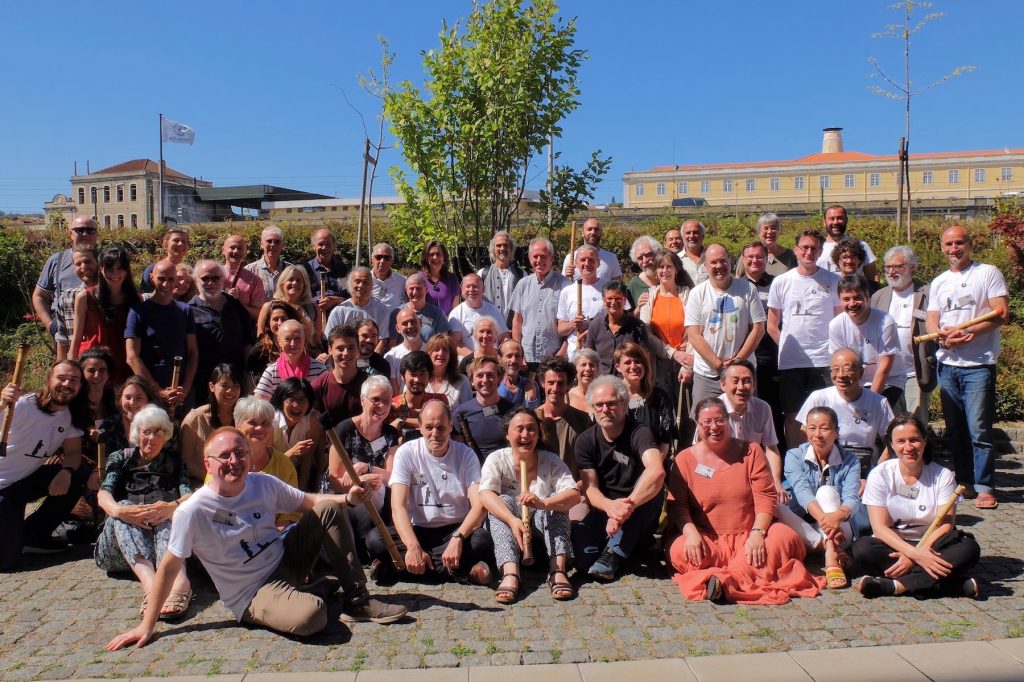
Robuki Wawe in the Time of Covid-19
When Covid-19 hit the world, I was wondering how we could in the shakuhachi community involve players and make then sense that we are in it together. Together with French shakuhachi player Véronique Piron we encouraged everyone to participate in ROBUKI. Robuki is playing long tones of the lowest tone played on the shakuhachi if all finger holes are closed. It is often said among shakuhachi players that ’10 minutes of Robuki a day makes a master’. We have had several global event in the shakuhachi community for example when someone important in the community had deceased and played the piece Tamuke simultaneously for his/her safe passing. But it was always at one specific time and it meant it could be in the middle of the night for some of the people in our community. This time we made it a continuous WAVE encouraging players to play ROBUKI at 12 o’clock noon at their local time. In that way it would become a Global Sound Wave going around the world. We made a video of the ROBUKI WAVE:
The ROBUKI WAVE in the time of COVID-19 is still continuing today. Everyone can join us. Now we just play ROBUKI when we want to. No specific time. Follow us on Facebook.
World Shakuhachi Day
I have long been thinking about creating a day where all shakuhachi aficionados from across the globe could celebrate the wonderful instrument we play. Together with 42nd kansu of Myoanji Temple Seien Genshin, we suggested 10.8 (8th October or 10月8日 in Japanese) to be the World Shakuhachi Day (WSD). The date is chosen because the word shakuhachi is the length of the standard instrument: 1 shaku (often translated as Japanese foot) and 8 sun. Thus, 10 as in 10 sun, which is 1 shaku, + 8 sun = 10.8. And since the shakuhachi has a Buddhist heritage we suggested we all play 108 ROBUKI or 108 times the lowest note (ro/ロ) on a shakuhachi. The first ever WSD was held on 8th October 2020 with the theme of ‘Blowing away Covid-19’. We had more than 140 ambassadors who spread the word. For more information on WSD see: www.worldshakuhachiday.com
Music in the Local Community
Verdensmusik i Nørre Snede (World Music in Nørre Snede Town)
I live in the small town Nørre Snede in the Danish countryside and I felt it was important to share my musical knowledge and contacts with the local community. I, thus, created ‘Verdensmusik i Nørre Snede’, which is a concert series under the local Culture and Library Society (NSKUBIB – Nørre Snede Kultur og Biblioteksforening). We most of the time host the concerts at the meditation centre, to which I belong but at times at the local school or church. Verdensmusik i Nørre Snede is supported by the Ikast-Brande County and Kunststyrelsen (the Danish Arts Council), which means we have five concerts a year. In the introduction to the concert, I try to tell the audience about the music culture from which the music comes from. We have one classical concert a year. It has so far been wonderful to have this series in the little town. And even people from other nearby towns come to the concerts. It is important for me that people in the local area can have an experience of cultures they otherwise will not be in contact with. We usually put in a break in the concert where people can communicate among themselves and also with the musicians. We have some ideas of combining food and music, which would make the exchange even stronger. But that has to be when the covid-19 pandemic is under control. Have a look at our Facebook page for more information.
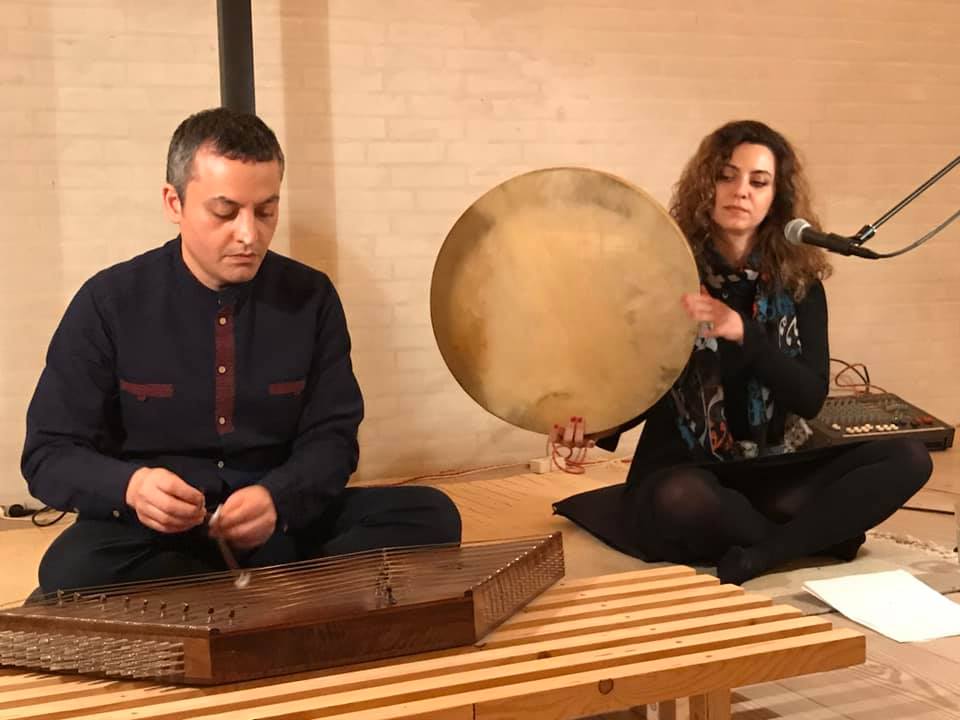
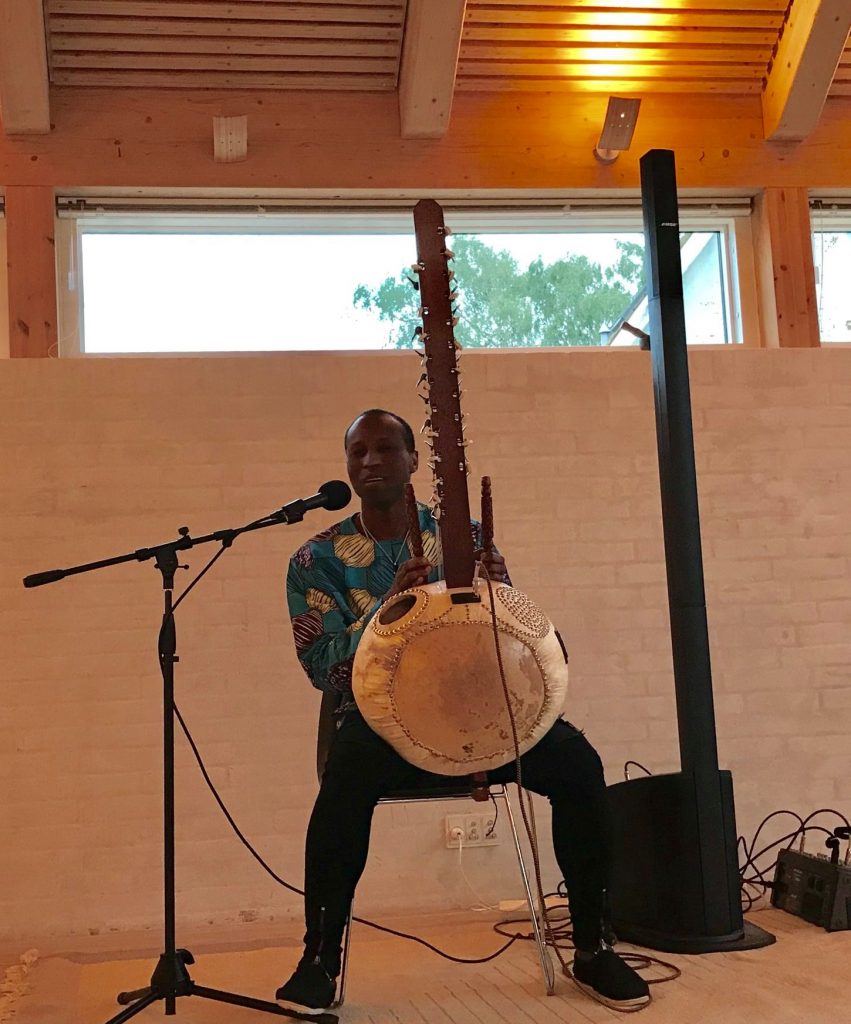
Music from around the world in schools
As part of Verdensmusik i Nørre Snede, I try to work for the introduction of various music from the world to school children. I tell the children about the music and they get to try a little and listen to the music. Below are photos from when children at Nørre Snede School were introduced to South Indian music.
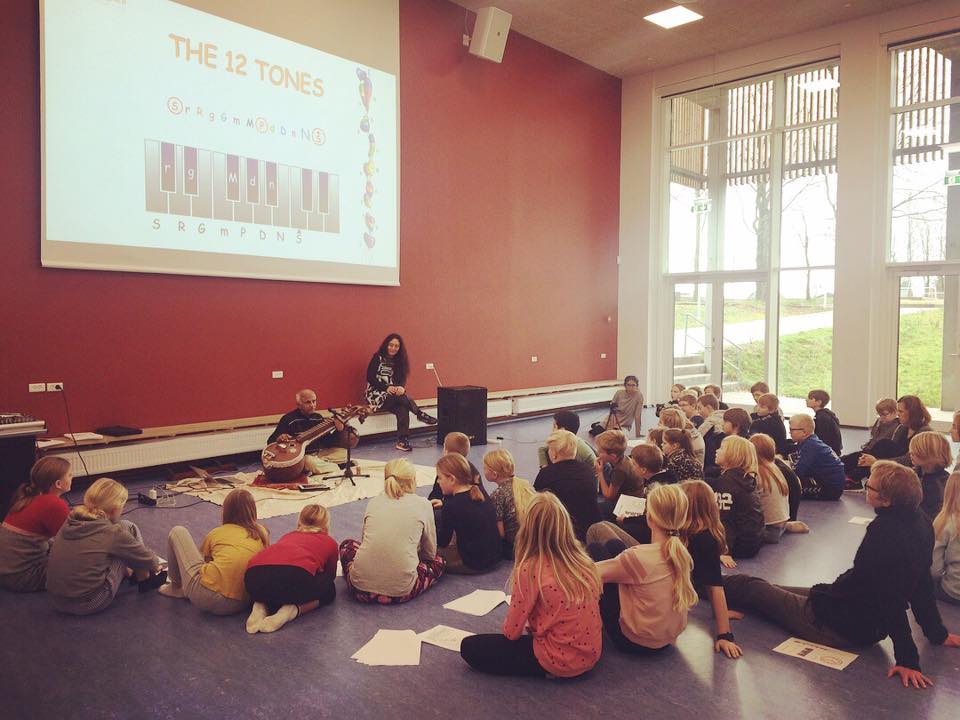
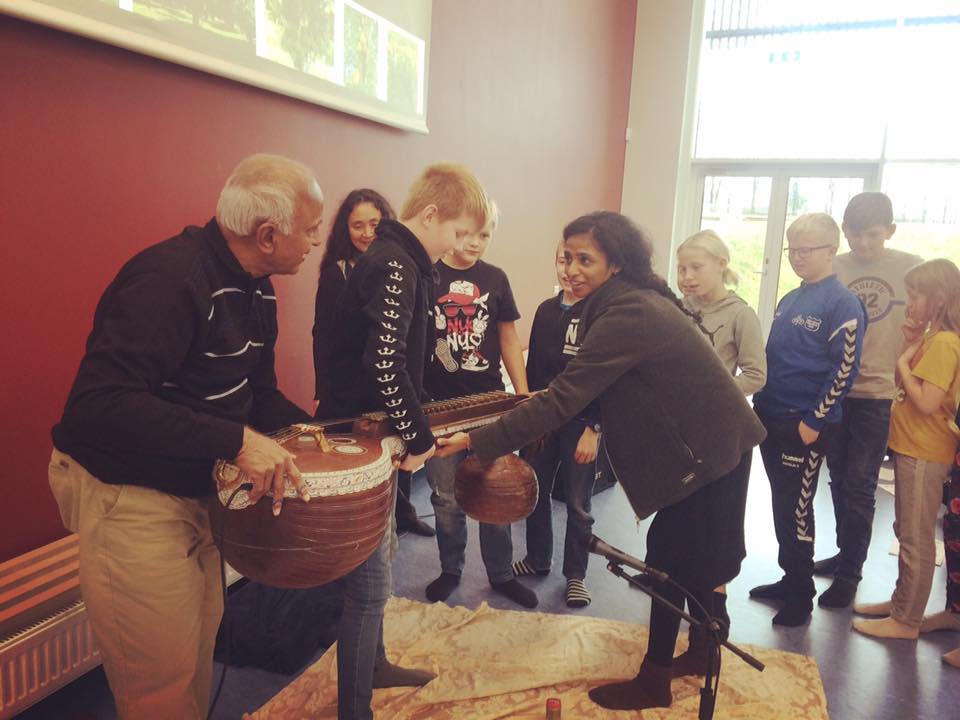
Community Work as Research
Issues on race, equality, diversity etc
Issues on race, equality, diversity, feminism and LGBT rights have always occupied my mind – also in music studies. And it is a burning issue of our time – not least with BLM during the Covid-19 pandemic. Together with Dr Shzr Ee Tan, senior lecturer in Ethnomusicology at Royal Holloway, I organised the webinar Orchestrating Isolation: Musical Interventions and Inequality in the Covid-19 Fallout, which took place 22 June 2020. See more information here.
Here is my keynote speech;
Publishing research on shakuhachi
In my work as a chairperson of the European Shakuhachi Society, I was also the chair of the Executive Committee for the 7th World Shakuhachi Festival 2018 in London hell at Goldsmiths, University of London. The day before the festival began I organised the first one-day shakuhachi Symposium at SOAS, University of London. I was surprised by the high quality of shakuhachi research presented during this one long and wonderful day. Together with Gunnar Jinmei Linder, we are right now working on publishing an anthology based on the presentations from the Symposium. Working title for the book: One Sound becoming Buddha: The Shakuhachi, history, modernity and complexity.
Living in a meditation community
I live at a meditation community or centre called Vækstcenteret in the small town of Nørre Snede. We are 80 people who first of all meditate together, follow the teachings of Jes Bertelsen and do many practical tasks together. We all have tasks such as cleaning, and then we are in a ‘work group’. I am in the Vegetable Garden Group as I have a passion for growing (and foraging) food. Vækstcenteret is apart from being run somewhat as a modern monastery also a location for meditation courses. Together we run the place’s physical environment (the garden, buildings, cleaning, accounting etc), but also cooking meals for course participants. Being part of this community is indeed very important for me and it is among other places also here, I really put into practice community living.
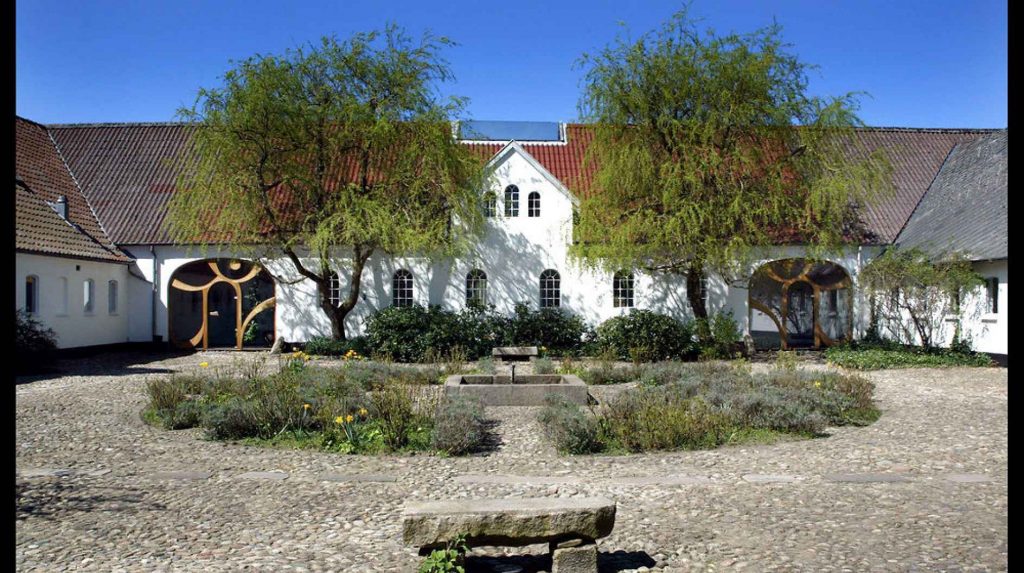
Musical Activity as Communal Work
I believe the more women of colour stand together, get out there expressing their artistic visions – the more systematic and institutional racism will have to change. I have just become a member of SKLASH+ SKLASH+ is the Danish acronym for Contemporary Female Sound Creators’ Atrium for Conversation and Holocene Studies. The plus sign is an invitation to the female-identifying, non-binary and LGBTQ+ community. The word Holocene comes from Greek and means” the whole new epoch”. SKLASH+ is an open chamber for dialogue, a platform that will pump the blood for creating the world we want to live in. An exchange accelerator in our shared courtyard, which hosts and spreads experiences from new perspectives, and puts them in interaction with a prospect view of the sky and the stars. Concerts every Tuesday at H15 SCENE and Klub Primi
Activities in anti-racism/equality work
On the Danish Cartoon Crisis in the Guardian
I have always written worked as much as possible for equal rights and anti-racism. Growing up in a homogeneous country such as Denmark has taught me about the unequal opportunities for human being depending on the sound of one’s name, the colour of one’s skin and of course where one is born.
I wrote this article in the Guardian when Denmark for the first time (and not last) became world news as a representative of oppression and racism. This was back in 2006 of course:
https://www.theguardian.com/world/2006/feb/15/muhammadcartoons.comment
This article is mentioned, among other places, on Wikipedia:
https://en.wikipedia.org/wiki/Jyllands-Posten_Muhammad_cartoons_controversy
On the representation of ‘the Other’ in Arts (in this case a Hollywood movie) in the Guardian:
I wrote this piece while still an MFA student at Mills college. I couldn’t believe how ‘the Other’ was still represented in a grand movie from Hollywood:
